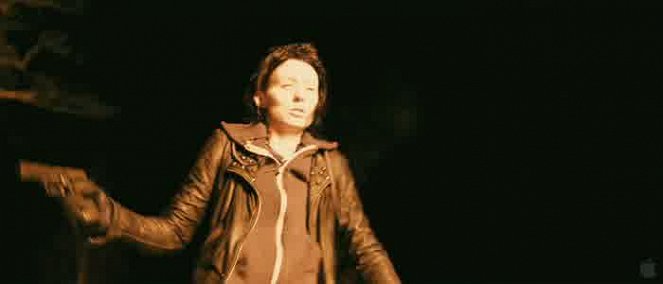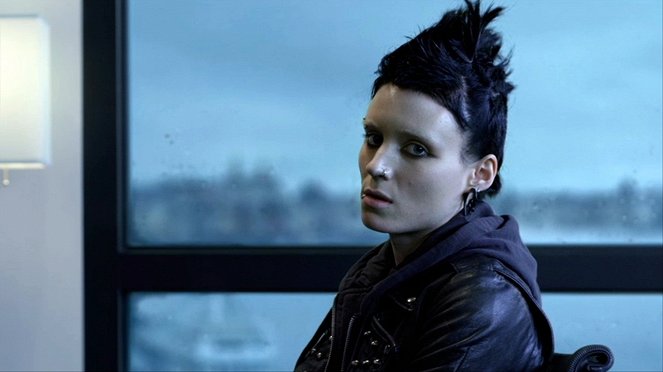Directed by:
David FincherScreenplay:
Steven ZaillianCinematography:
Jeff CronenwethCast:
Daniel Craig, Rooney Mara, Christopher Plummer, Stellan Skarsgård, Steven Berkoff, Robin Wright, Yorick van Wageningen, Joely Richardson, Geraldine James (more)VOD (3)
Plots(1)
Forty years ago, Harriet Vanger disappeared from a family gathering on the island owned and inhabited by the powerful Vanger clan. Her body was never found, yet her uncle is convinced it was murder and that the killer is a member of his own tightly knit but dysfunctional family. He employs disgraced financial journalist Mikael Blomkvist and the tattooed, ruthless computer hacker Lisbeth Salander to investigate. When the pair link Harriet’s disappearance to a number of grotesque murders from almost forty years ago, they begin to unravel a dark and appalling family history. But the Vanger’s are a secretive clan, and Blomkvist and Salander are about to find out just how far they are prepared to go to protect themselves. (official distributor synopsis)
(more)Videos (7)
Reviews (13)
David Fincher's directorial style is beautifully easy to recognize, he imparts it to every one of his films. Brilliantly crafted dialogues, musical score, uncompromising atmosphere. This film could have been made in a number different ways. Essentially, it is a considerably clichéd and well-known story about a serial killer, but in the hands of a master, it becomes a unique cinematic delicacy, where ordinary things are presented in a completely extraordinary and distinctive manner. In the end, it is a seemingly well-behaved and coherent film that is brutally eccentric and demonically precisely shot. I wouldn't expect anything less from Fincher.
()
Remember the likable girl who dumped Mark Zuckerberg at the beginning of The Social Network? Try to imagine her with a lot of piercings, a mohawk and t-shirt emblazoned with FUCK YOU YOU FUCKING FUCKER on her thin, pale body. Love her or hate her, she doesn’t know how to be any other way. Lisbeth Salander. Though the film respects the book’s dual (in later parts, multiple) narrative perspective, it’s hard not to get the impression that Fincher is more fascinated by the androgynous hacker than by the reporter obsessed with finding out the truth. The filmmaker, who has always gravitated toward anarchy, as is evident in the violation of genre conventions in his films, has previously expressed a weakness for anti-social protagonists who aim to tear down the system. Actually, “weakness” probably isn’t a very appropriate term, as it can be associated with compassion, understanding and emotional kinship – none of which Fincher shows towards his characters. He does not offer them any kind of protection, which, with respect to the genre and the nature of the crimes committed, evokes an intense fear that practically anything can happen to the protagonists. This is true even if you have read the book and/or seen the Swedish version and you know what happens and when. I wouldn’t call the “care about the characters if you want; the information is more important to me” approach heartless; it’s just maximally focused on the issue being observed and reminiscent of Lisbeth’s thinking based on the analysis of consequences. Every piece of information presented will be put to use sooner or later. Every character and every action serves the narrative. I found the most cold-blooded example of the pragmatic understanding of a human being as a bearer of useful information to be Mikael’s meeting with his daughter, which doesn’t serve to inform us about the protagonist’s personal life, but only to further the investigation. The indifference to people’s emotions doesn’t come only from the director’s “mechanical” perfectionism – it is one of the film’s primary themes. None of the presented families is functional (Mikael is divorced, Lisbeth tried to burn her father); in the biggest family, money replaced emotions. Affection is expressed through sex. The crushing of all certainties continues with the discrediting of the system that made Lisbeth a legally insane psychopath and is not effective even in investigating crimes that can be proven only at the cost of committing other crimes. On top of that, utter hopelessness is ensured by the fatiguing outdoor cold, in which, however, it is less probable that some lunatic will inflict serious internal injuries than in the outwardly safe heated homes. Thanks also to the edgy music, spilling over into and out of the noise of the setting and thus always “present”, I had an unpleasant feeling not only during the most brutal scenes, but from start to finish. I consider making a film this disturbing based on a bestselling novel (so it is basically a so-called pre-sold product) and within a system built on feel-good movies to be an act almost as subversive as splicing frames of bare male genitalia into a children's film. 85%
()
(less)
(more)
If I compare the procedural ritual Zodiac and this sexless genre trap, it's clear that Fincher was doing a studio job. Nordic detectives are not cool. They're really weird. This version was unable to capture this at all. The investigation is secondary here, and what makes it twice as bad given that it’s Fincher - any pathological charge slips away here. The fact that the killer listens to Enya is a weak band-aid. Anal sex in the form in which the film offers it can really outrage only unbroken Catholics, and there were more places where I searched in vain for Fincher's contribution. Personally, I suffered through most of the film - and something tells me that if you don't know the book, some of the things won't make sense (for a detective story, the motivations of the killer and the detective are quite crucial, which are hardly found here).
()
An atmospheric illustration of a subordinate storyline from the novel; nothing more, nothing less. On one hand it is terribly little for Fincher (a special aspect of his preceding five adaptations of novels was that he always used his own interpretation and viewpoint, and Larsson offers much in this respect; too bad that he cut it down to this unimportant thrilleroid part), on the other it must be said that there are illustrations by nobodys and illustrations like those by Zdeněk Burian, which enrich the original story and become inseparable. And, in the same way that Craig is Blomkvist and Mara is Lisbeth (although an utterly different Lisbeth than Noomi), this is Burian. And yes, Fincher is still the same formal pedant under whom Reznor is growing into one of the timeless greats. Just Enya, removed of innocence once and for all, disappointed.
()
My slight disappointment stems paradoxically from my ignorance of the book, which is obviously not very suitable for filming. This is because the quantity of names becomes annoying after a while, although otherwise, Fincher does great work as usual in all other components, so we do get a great soundtrack (but this time it's too "off the charts" for the Oscar race:)), excellent cinematography (which underlines the pedantic narrative), and precise actors. But I'll definitely go see it again. The fact that the gardener is the murderer will soon dawn on even the slower folks, but that's beside the point. How we get there is the first priority this time. Fincher is the best director alive right now, period.
()


